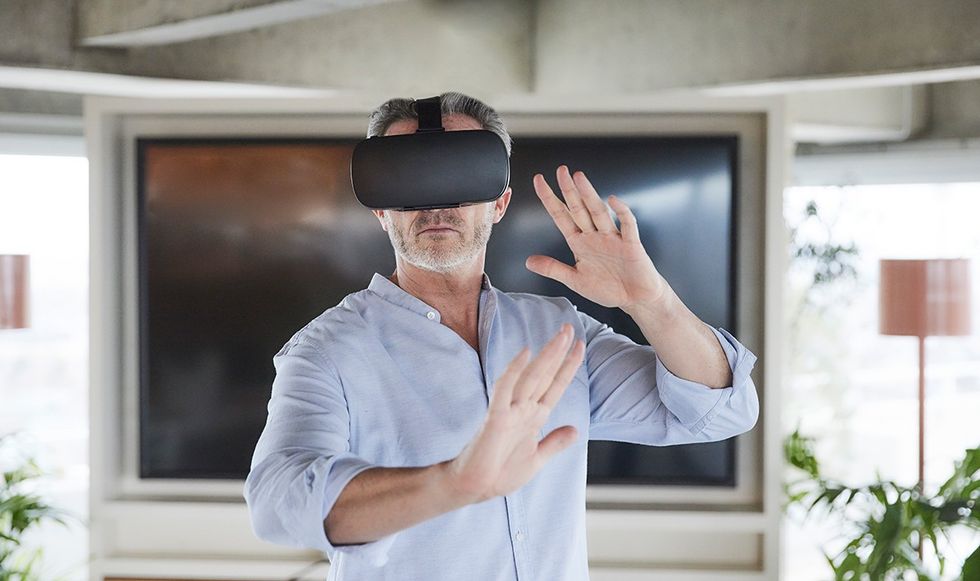Dementia breakthrough as researchers find new warning sign of Alzheimer's - precedes memory loss by DECADES
Spatial navigation may begin to develop years, or even decades before Alzheimer's disease
- Impairments in spatial navigation may precede the onset of Alzheimer's symptoms by years
- The finding could pave the way for earlier and more targeted interventions
Don't Miss
Most Read
Trending on GB News
Poor navigation abilities may predict Alzheimer's disease decades beforehand, a breakthrough new study has found.
The finding advances efforts to identify brain decline at the earliest point possible in a bid to stop it.
And it is hoped that it will lead to the roll out of new diagnostic tools on the NHS in the coming years.
Memory loss is regarded as the hallmark of Alzheimer's disease - the leading cause of dementia - but UCL researchers wondered whether the ability to get from A to B might precede the onset of symptoms.

The impairment was observed in men but not women
Getty Images
With this in mind, they used virtual reality to test the ability of 100 asymptomatic adults aged 43 to 66 – around 25 years younger than their estimated age of dementia onset – to determine and maintain a route from one place to another.
People at greater risk of developing Alzheimer’s disease, regardless of why, were impaired on the VR navigation task, without a corresponding impairment on other cognitive tests.
The researchers also found that there was a strong gender difference in how people performed, with the impairment being observed in men and not women.
The findings suggest impairments in spatial navigation may begin to develop years, or even decades, before the onset of any other symptoms, the experts say.
First author, Dr Coco Newton, of UCL Institute of Cognitive Neuroscience, who carried out the work while at the University of Cambridge, said: “Our results indicated that this type of navigation behaviour change might represent the very earliest diagnostic signal in the Alzheimer’s disease continuum – when people move from being unimpaired to showing manifestation of the disease.”
All of those involved in the study, who were involved from the PREVENT-Dementia prospective cohort study – had a hereditary or physiological risk of Alzheimer’s disease.
This was either due to a gene that puts them at risk of the condition, a family history of Alzheimer’s, or lifestyle risk factors such as low levels of physical activity.
Led by Professor Dennis Chan, the study used a test designed by Dr Andrea Castegnaro and Professor Neil Burgess in which people were asked to navigate within a virtual environment while wearing VR headsets.
LATEST DEVELOPMENTS
Heartbreaking moment woman, 25, announces her own death
Dave Myers' surprising health diagnosis weeks before death
How Britain became addicted to painkillers
Dr Newton added: “We are now taking these findings forward to develop a diagnostic clinical decision support tool for the NHS in the coming years, which is a completely new way of approaching diagnostics and will hopefully help people to get a more timely and accurate diagnosis.
“This is particularly important with the emergence of anti-amyloid treatments for Alzheimer’s, which are considered to be most effective in the earliest stages of the disease.
“It also highlights the need for further study of the differing vulnerability of men and women to Alzheimer’s disease and the importance of taking gender into account for both diagnosis and future treatment.”
It comes after a study last year found that the people who experienced difficulties turning were those with mild cognitive impairment (MCI) but also had underlying signs of early Alzheimer’s disease, including elevated levels of Alzheimer’s proteins in their spinal fluid.








